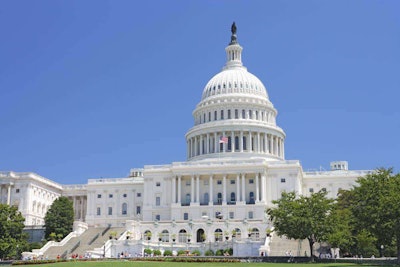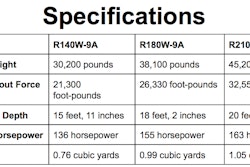
The Senate Finance Committee has delayed its vote on a proposed short-term patch that would provide funding for transportation infrastructure projects through Dec. 31, The Hill reports.
During a markup of the Preserving America’s Transit and Highways (PATH) Act Chairman Ron Wyden (D-Ore.) agreed to delay a vote on his proposed $9 billion plan. Wyden plans to use the additional time to address Republican concerns.
“There really isn’t the time for the two parties to go to their respective corners and battle it out,” Wyden said during the hearing.
The current highway bill, MAP-21, expires Sept. 30, but the Highway Trust Fund (HTF), which provides federal money to state and local projects, is projected to run out of money by the end of August. So, lawmakers are pressed to find a solution soon.
CBO on the HTF
Prior to the hearing, the Congressional Budget Office (CBO) sent a letter to Wyden addressing questions the senator asked about the status of the Highway Trust Fund. According to the CBO, an estimated $8 billion would be needed for the HTF to meet obligations through Dec. 31, assuming funding levels remain consistent with those provided in fiscal year 2014.
The CBO also notes that increasing fuel taxes by 6 cents per gallon (as proposed earlier this month) would generate about $4 billion in additional revenue through the remainder of the year. The agency adds that “those additional revenues would not be adequate to prevent a shortfall in the Highway Trust Fund.”
To read the full letter, click here.
Republicans want less spending
A major Republican concern is the amount of spending included in Wyden’s plan. The Hill reports that Sen. Orrin Hatch (R-Utah), the Finance Committee’s ranking Republican, said Wednesday that the plan would need to include “a significant number of spending cuts to go along with any revenue increases.”
Sen. John Thune (R-S.D.) agreed.
“We’re either going to have to accept a dramatically smaller highway program, or we’re going to have to figure out a way to fund it,” Thune said in The Hill report.
Sen. Rob Portman (R-Ohio) added that the federal government should give up control of transportation funding.
“I think it makes a lot of sense … to return this money to the states,” Portman said. “It’s not even allowing to return to the states. It’s allowing it to stay in the states.”
However, Wyden rebutted, pointing to a need for federal funding.
“There’s a reason we call it the interstate highway system,” Wyden said. “It’s federal in nature.”
Another gas tax proposal
Before the hearing began, Sen. Tom Carper (D-Del.) announced that he filed an amendment that would increase the gas tax by four cents per year for three years before indexing it to inflation.
Carper said his plan “would cover a six-year bill at level funding plus inflation,” allowing for an increase in funding while paying for what’s already being spent.
“When you think about it, gas prices can go up and down four cents or more in the course of a week, so four cents in a year is a pretty reasonable price to pay for having good quality roads and transit, and safe bridges,” Carper said in a prepared statement. “Things that are worth having are worth paying for, and after transferring $54 billion into the Highway Trust Fund in recent years, this is the most fiscally responsible thing we can do.”
Carper and Wyden weren’t the only committee members to propose amendments. Check out the full list here.












